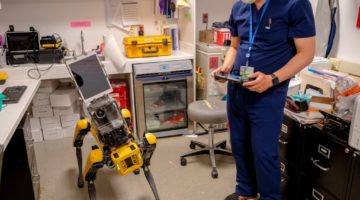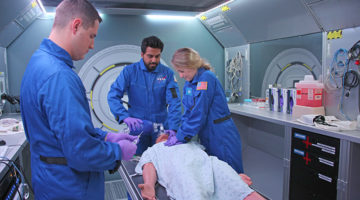
What if a patient could have their risk of obstructive sleep apnea measured by swallowing a pill?
A new collaborative study from Brigham and Women’s Hospital, Massachusetts Institute of Technology, Celero Systems, and West Virginia University evaluated a wireless ingestible device that can accurately report vital signs like heart and respiratory rate.
The team tested the device, known as the Vitals Monitoring Pill, in a pilot clinical study of 10 people with sleep apnea. It was also able to detect signs of opioid-induced respiratory depression in a preclinical model. Their results could transform how life-threatening events are monitored and prevented.









